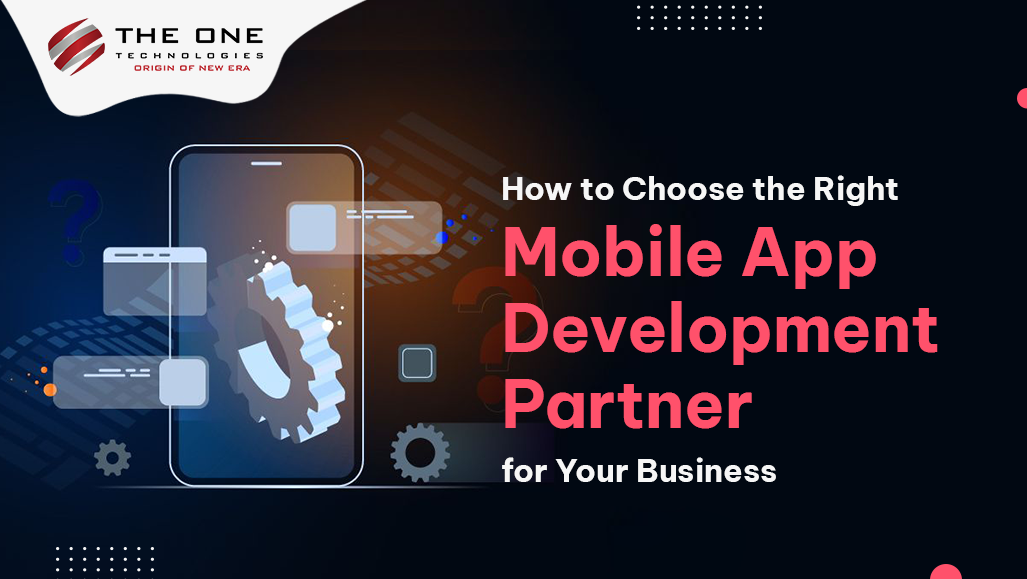How to Choose the Right Mobile App Development Partner for Your Business

A proper development partner is the sole difference between your app dream and an expensive digital failure. Your app is your brand's crown jewel storefront. Anything less than brilliance is a tactical gamble. Far too many businesses discover this too late, having already sunk money into a company that causes delays, over-budgeting, and a disappointing user experience. The result is draconian: sunk costs, lost revenue potential, and damage to your company's reputation.
Selecting the appropriate mobile app development company can be the difference between starting up an app that sparks growth or one that submerges your company. But how exactly do you effectively assess prospective partners in a congested and highly competitive marketplace? That is the step-by-step guide created specifically for business leaders and professionals to get it right on the first attempt.
1. Start with Business Goals, Not Just Features
Another frequent error that decision-makers commit is looking only at technical aspects. Although it's simple to become engrossed in debates about tech stacks, integrations, or popular elements such as AI chatbots, the building block of any successful project is sound business objectives. Before bringing a development partner on board, determine what success will be:
- Do you want to increase customer engagement?
- Is the goal to streamline internal processes?
- Are you aiming to open a new revenue channel?
A good development partner will sync their plan with your business goals, not simply code what you request. If a partner dives in and starts coding without knowing your objectives, it's a red flag.
2. Look for Industry Experience and Case Studies
All apps are not the same, and neither are app developers. The complexities involved in developing a fintech app, say, are enormously different from those of an e-commerce or healthcare app. In assessing potential partners, request case studies or references in your industry. It shows not only technical competence but also compliance capability with customer behavior patterns and market trends specific to your industry.
An experienced partner will have proactive ideas to offer, pointing out possible risks, recommending best practices, and making your app not only functional but competitive.
3. Technical Expertise and Scalability
Technology is the foundation of your app. But it's not so much about what's hip, it's about what's sustainable and scalable. A trustworthy partner ought to be skilled in several frameworks (iOS, Android, cross-platform) and have the ability to suggest the most suitable option for your business objectives and your budget. Aside from development, inquire how they approach:
- App scalability for increasing user bases.
- Integration capabilities with your current systems (CRM, ERP, payment gateways).
- Security protocols to safeguard sensitive information.
If your partner does not plan ahead for scaling or security, you run the risk of creating an app that will function today but fail tomorrow.
4. Assess Communication and Collaboration Practices
One of the main reasons projects fail is poor communication. Your development partner should be an extension of your team, keeping you informed with regular updates, clear timelining, and open processes. Notice the way they communicate in the selection process:
- Do they define technical terms in simple business terms?
- Are they proactive and responsive?
- Do they employ project management tools enabling visibility into progress?
The best partner will facilitate teamwork and keep you in the driver's seat, even when you are not technically savvy.
5. Consider Long-Term Support and Maintenance
Releasing your app is just the starting point. Fixes, updates, performance tuning, and new operating system compliance are continuous requirements. Most companies neglect this phase and find themselves at a loss later in search of support.
Request ahead of time for post-launch services. A good partner will offer maintenance packages, performance tracking, and regular upgrades. This assures that your app keeps on delivering value years after going live.
6. Compare Cost Versus Value
Budget will always be a determining factor, but emphasizing the lowest bidder is risky. Inexpensive development tends to have costs in the future, either due to code quality issues, delays, or non-scalability. Rather, evaluate partners on value:
- Do they come with strategic thinking as well as development?
- Do they make cost breakdowns clear?
- Will the app they develop yield measurable ROI?
Your ideal partner might not always be the lowest-priced, but they will be the one who makes your investment worth it.
7. Verify Reputation and Client References
Finally, don't take everything the partner utters at face value. Check their reputation using client feedback, third-party ratings, and word-of-mouth referrals. Interview past clients to see how they experienced it, how the firm resolved difficulties, if deadlines were adhered to, and how the app runs after going live. A good partner will not hesitate to give references, whereas hesitation should concern you.
The Conclusion
Creating a mobile app is more than coding, it's creating a digital extension of your business that increases customer value and drives quantifiable growth. Your ideal Mobile App Development Company won't just 'get it,' they will help take it to the next level with technical know-how, vertical experience, and vision for long-term success. Ready to make your business dreams a reality with a killer mobile app? Then spend some time checking out potential partners. Think of it as more than just hiring someone – it's a team effort. Pick the right partner now and you'll be setting yourself up for big wins later.









